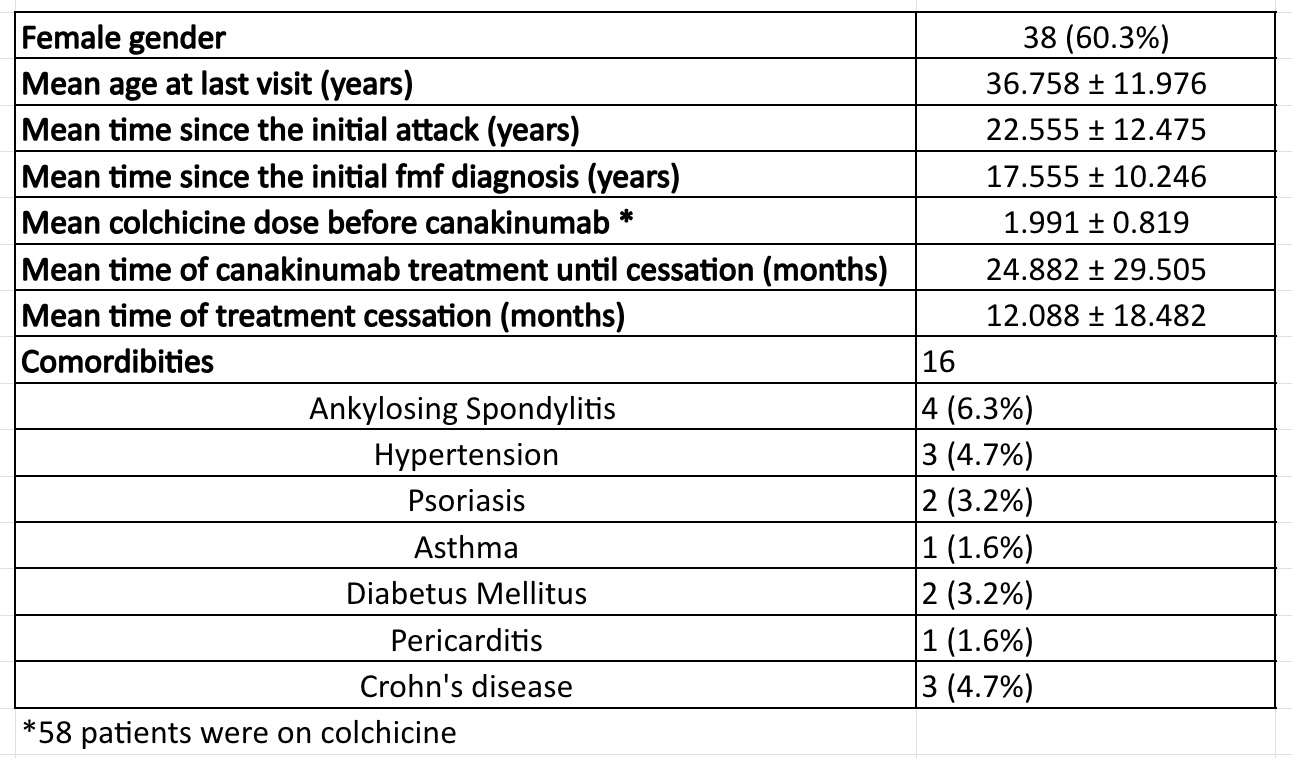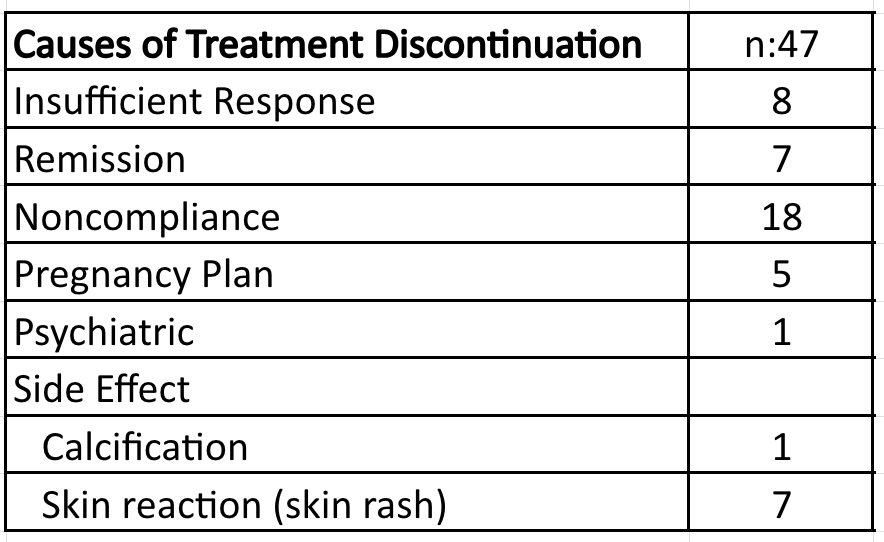Session Information
Session Type: Poster Session C
Session Time: 10:30AM-12:30PM
Background/Purpose: Canakinumab is one of the most commonly used second-line agents in familial Mediterranean fever (FMF) after treatment failure or discontinuation of colchicine treatment. The efficacy and safety of canakinumab in patients with FMF have been mainly proven by randomized controlled trials; however, real-life studies are needed to analyze treatment retention and characterize the side effect profile. Here, we aimed to describe our experience with canakinumab in the treatment of patients with FMF.
Methods: In this study, we retrospectively reviewed the charts of the patients with FMF followed up at our tertiary autoinflammatory diseases clinic, diagnosed according to the Tel-Hashomer criteria, who had received at least three doses of canakinumab treatment since 2012. Pregnant patients were excluded from the analysis. The patients were analyzed for genetic mutations for FMF. The reasons for discontinuation and the duration for discontinuation were recorded for the patients who had discontinued canakinumab treatment.
Results: A total of 63 FMF patients who had used canakinumab were identified. The patients were primarily female (60.3%), with a mean disease duration of 22.6 years (Table 1). Thirty-five patients were homozygous for the M694V mutation, and 13 were heterozygous. Out of 63 patients, 47 of them (74.6%) had treatment discontinuation. The most common reasons were non-compliance, insufficient response, and skin rash at the site of injection (Table 2). Seven patients also stopped treatment due to sustained remission. Out of 47 patients who discontinued canakinumab treatment, 34 (72.3%) restarted receiving canakinumab due to recurrence of attacks. The mean time to a new attack after treatment discontinuation was 4.13 ± 2.58 months.
Conclusion: We conclude that many patients on canakinumab experienced treatment discontinuation during the course of their treatment; however, most of them were restarted on canakinumab, which suggests that reasons for discontinuation were mostly reversible. Noncompliance remains a major issue which necessitates the need for measures to increase retention.
To cite this abstract in AMA style:
Simsek O, Ayla A, Ugurlu S. Canakinumab Treatment in Patients with Familial Mediterranean Fever: A Tertiary Center Experience [abstract]. Arthritis Rheumatol. 2024; 76 (suppl 9). https://acrabstracts.org/abstract/canakinumab-treatment-in-patients-with-familial-mediterranean-fever-a-tertiary-center-experience/. Accessed .« Back to ACR Convergence 2024
ACR Meeting Abstracts - https://acrabstracts.org/abstract/canakinumab-treatment-in-patients-with-familial-mediterranean-fever-a-tertiary-center-experience/


